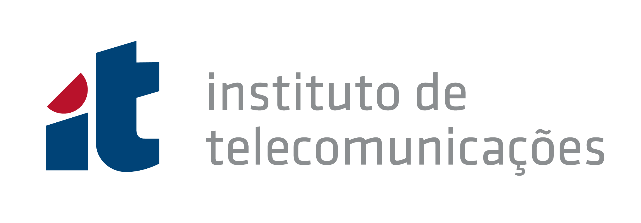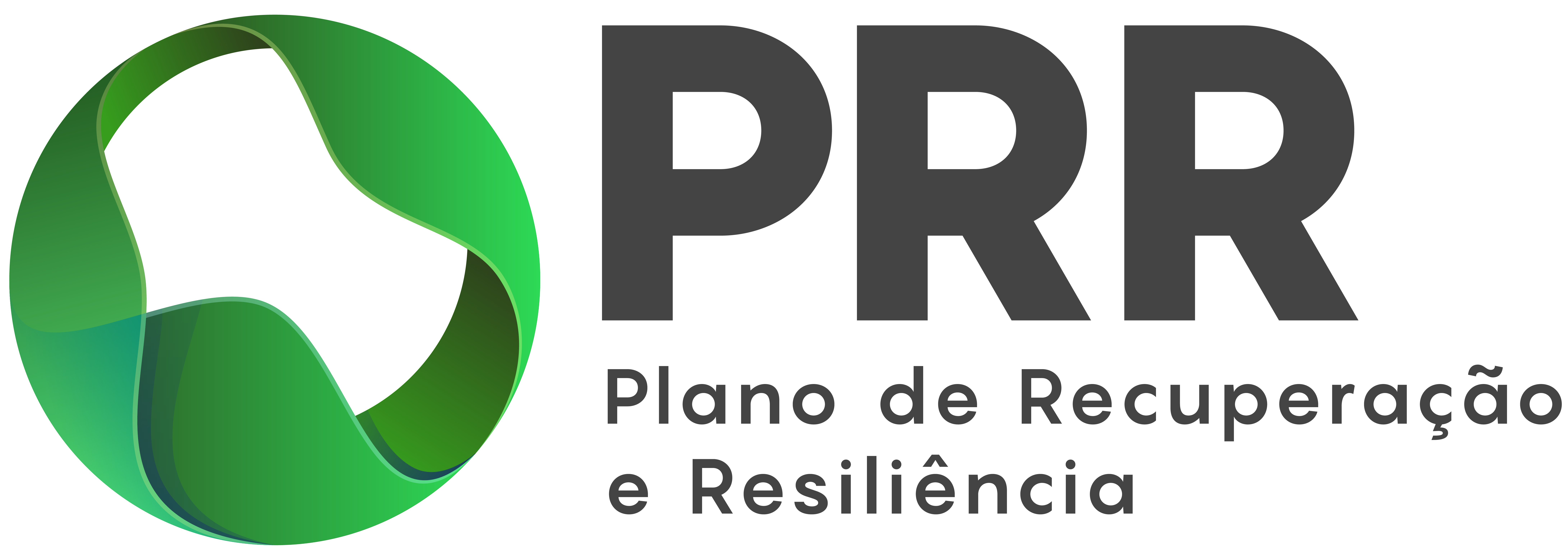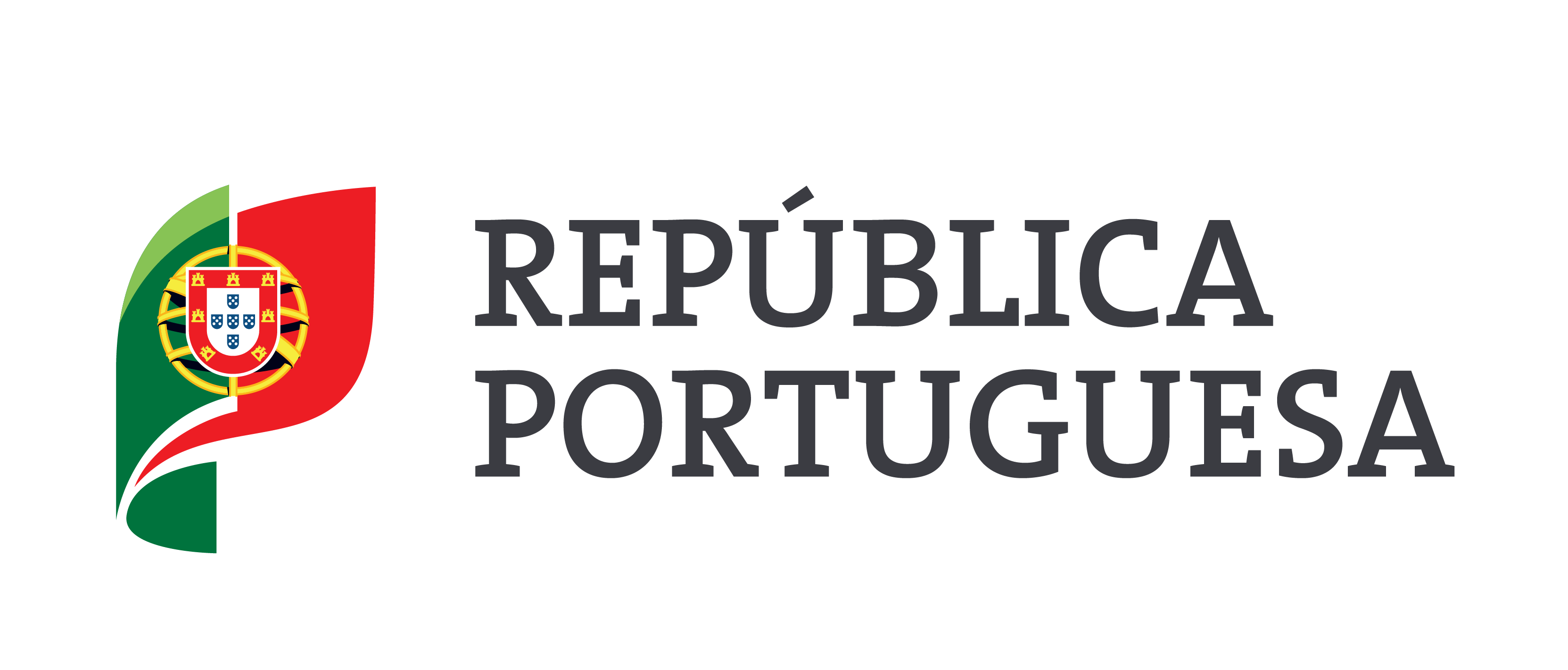University of Aveiro, Portugal
9th - 15th of September 2024
Join us for the 2024 edition of Aveiro Space Week, where you'll dive into high-impact space engineering challenges in the picturesque city of Aveiro, known for its charming canals and vibrant culture.
Participate in our Summer School, featuring Hardware and Software tracks, to develop Earth observation tools in this unique setting.
The week also includes the World CanSat/Rocketry Challenge, where you'll witness the exciting launch of CANSATs.
Come join us in savouring some of the best seafood in Portugal and live the joys that only a seaside town can offer.
| Sep. 9 | Sep. 10 | Sep. 11 | Sep. 12 | Sep. 13 | |
|---|---|---|---|---|---|
| 9:00-10:30 | Registration | Software Defined Radio | RF and Optics Theory | Telecom/Radar Theory | Final Hackaton |
| 10:30-11:00 | Coffee Break | Coffee Break | Coffee Break | Coffee Break | Coffee Break |
| 11:00-13:00 | Welcome Session | Software Defined Radio | RF and Optics Practice | Telecom/Radar Practice | Final Hackaton |
| 13:00-14:00 | Lunch | Lunch | Lunch | Lunch | Lunch |
| 14:00-15:30 | Seminar | Seminar | Seminar | Seminar | Award Ceremony |
| 15:30-18:00 | Social Activities | Social Activities | Social Activities | Social Activities |
| Sep. 9 | Sep. 10 | Sep. 11 | Sep. 12 | Sep. 13 | |
|---|---|---|---|---|---|
| 9:00-10:30 | Registration | Earth Sciences | Data Analysis | App Development | Final Hackaton |
| 10:30-11:00 | Coffee Break | Coffee Break | Coffee Break | Coffee Break | Coffee Break |
| 11:00-13:00 | Welcome Session | Remote Sensing | Data Analysis | App Development | Final Hackaton |
| 13:00-14:00 | Lunch | Lunch | Lunch | Lunch | Lunch |
| 14:00-15:30 | Seminar | Seminar | Seminar | Seminar | Award Ceremony |
| 15:30-18:00 | Social Activities | Social Activities | Social Activities | Social Activities |
| Sep. 13 | Sep. 14 | Sep. 15 | |
|---|---|---|---|
| 9:00-13:00 | Registration | CanSat Review | Exploring Aveiro |
| 13:00-14:30 | Lunch | Lunch | Lunch |
| 14:30-16:00 | Registration | Launch Campaign | Award Ceremony |
| 16:00-20:00 | Opening Ceremony | Launch Campaign |
Aveiro Space Week offers you the opportunity to sponsor the event and promote your company to a wide audience, through media exposure and direct contact with the participants. You can tailor your sponsorship package to suit your needs and budget. We offer three levels of sponsorship: Quasar, Star, and Satellite. Each has its own benefits as shown in the table below. Come be our partner in this exciting event!
| Quasar Sponsor | Star Sponsor | Satellite Sponsor | |
|---|---|---|---|
| SPEAKER | X | ||
| EXHIBITION SPACE | X | X | |
| WEB LOGO | X | X | X |
| BAG MATERIAL | X | X | X |
| VALUE [EUR] | 1000 | 500 | 250 |
Send us a message and we will get in touch!
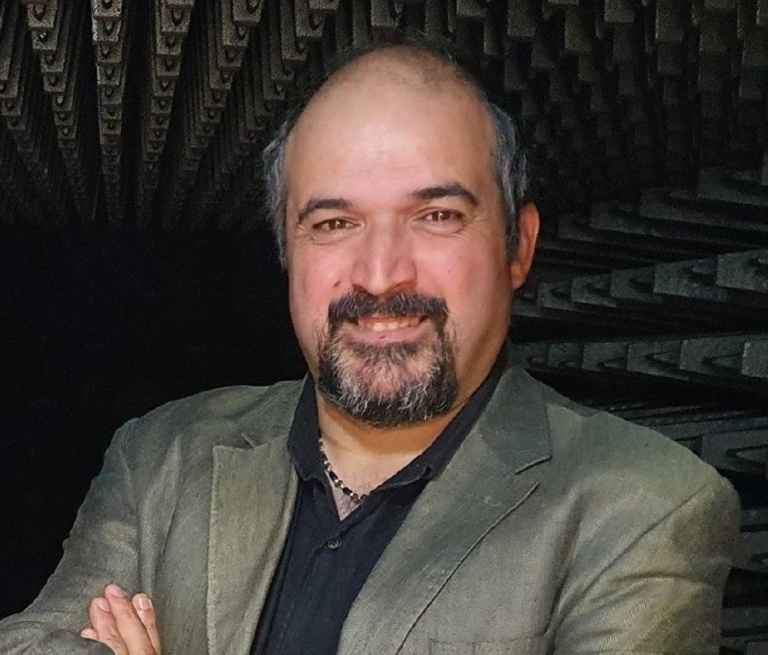 Nuno Borges Carvalho (S’97–M’00–SM’05-F’15) was born in Luanda, Angola, in 1972. He received his Diploma and Doctoral degrees in electronics and telecommunications engineering from the University of Aveiro, Aveiro, Portugal, in 1995 and 2000, respectively. He is a Full Professor and a Senior Research Scientist with the Institute of Telecommunications, University of Aveiro. He is the director of the Department of Electronics, Telecommunications and Informatics at UA, and an IEEE Fellow. He coauthored Intermodulation in Microwave and Wireless Circuits (Artech House, 2003), Microwave and Wireless Measurement Techniques (Cambridge University Press, 2013), White Space Communication Technologies (Cambridge University Press, 2014) and Wireless Power Transmission for Sustainable Electronics (Wiley, 2020). He has been a reviewer and author of over 400 papers in magazines and conferences. He is the Editor in Chief of the Cambridge Wireless Power Transfer Journal, an associate editor of the IEEE Microwave Magazine, and former associate editor of the IEEE Transactions on Microwave Theory and Techniques and IET Microwaves Antennas and Propagation Journal. He is the co-inventor of six patents. His main research interests include software-defined radio front-ends, backscatter communications, wireless power transmission, nonlinear distortion analysis, and measurements in microwave/wireless circuits and systems. He has been involved in the design of dedicated radios and systems for newly emerging wireless technologies. Dr. Borges Carvalho is a member of the IEEE MTT ADCOM, the past chair of the IEEE Portuguese Section, TC-20 and TC-11, and belongs to the technical committees, TC-25 and TC-26. He is also the Chair of the URSI Commission A (Metrology Group). He was the recipient of the 1995 University of Aveiro and the Portuguese Engineering Association Prize for the best 1995 student at the University of Aveiro, the 1998 Student Paper Competition (Third Place) of the IEEE Microwave Theory and Techniques Society (IEEE MTT-S) International Microwave Symposium (IMS), and the 2000 IEE Measurement Prize. He is a Distinguished Lecturer for the RFID Council and was a previous Distinguished Microwave Lecturer for the IEEE Microwave Theory and Techniques Society. In 2023, he is the IEEE-MTT President.
Nuno Borges Carvalho (S’97–M’00–SM’05-F’15) was born in Luanda, Angola, in 1972. He received his Diploma and Doctoral degrees in electronics and telecommunications engineering from the University of Aveiro, Aveiro, Portugal, in 1995 and 2000, respectively. He is a Full Professor and a Senior Research Scientist with the Institute of Telecommunications, University of Aveiro. He is the director of the Department of Electronics, Telecommunications and Informatics at UA, and an IEEE Fellow. He coauthored Intermodulation in Microwave and Wireless Circuits (Artech House, 2003), Microwave and Wireless Measurement Techniques (Cambridge University Press, 2013), White Space Communication Technologies (Cambridge University Press, 2014) and Wireless Power Transmission for Sustainable Electronics (Wiley, 2020). He has been a reviewer and author of over 400 papers in magazines and conferences. He is the Editor in Chief of the Cambridge Wireless Power Transfer Journal, an associate editor of the IEEE Microwave Magazine, and former associate editor of the IEEE Transactions on Microwave Theory and Techniques and IET Microwaves Antennas and Propagation Journal. He is the co-inventor of six patents. His main research interests include software-defined radio front-ends, backscatter communications, wireless power transmission, nonlinear distortion analysis, and measurements in microwave/wireless circuits and systems. He has been involved in the design of dedicated radios and systems for newly emerging wireless technologies. Dr. Borges Carvalho is a member of the IEEE MTT ADCOM, the past chair of the IEEE Portuguese Section, TC-20 and TC-11, and belongs to the technical committees, TC-25 and TC-26. He is also the Chair of the URSI Commission A (Metrology Group). He was the recipient of the 1995 University of Aveiro and the Portuguese Engineering Association Prize for the best 1995 student at the University of Aveiro, the 1998 Student Paper Competition (Third Place) of the IEEE Microwave Theory and Techniques Society (IEEE MTT-S) International Microwave Symposium (IMS), and the 2000 IEE Measurement Prize. He is a Distinguished Lecturer for the RFID Council and was a previous Distinguished Microwave Lecturer for the IEEE Microwave Theory and Techniques Society. In 2023, he is the IEEE-MTT President.
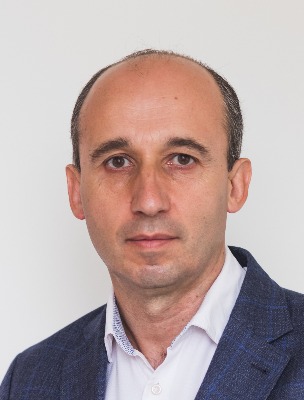 Arnaldo S. R. Oliveira received his Ph.D. in electrical engineering from the University of Aveiro, Portugal. He is currently a Senior Researcher at the Telecommunications Institute, University of Aveiro. He teaches computer architecture, digital systems design, and embedded systems at the University of Aveiro, where he is an Associate Professor. He is the author or co-author of more than 140 journal and international conference papers. His research interests include reconfigurable digital systems, software-defined radio, and next-generation radio access networks.
Arnaldo S. R. Oliveira received his Ph.D. in electrical engineering from the University of Aveiro, Portugal. He is currently a Senior Researcher at the Telecommunications Institute, University of Aveiro. He teaches computer architecture, digital systems design, and embedded systems at the University of Aveiro, where he is an Associate Professor. He is the author or co-author of more than 140 journal and international conference papers. His research interests include reconfigurable digital systems, software-defined radio, and next-generation radio access networks.
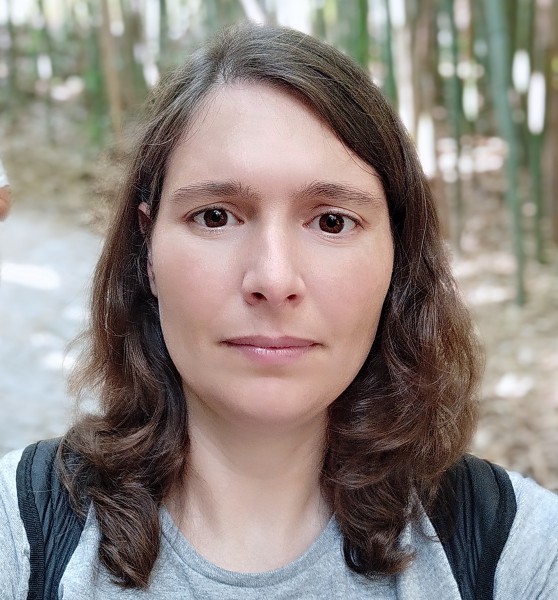 Carina Lopes is an Assistant Professor in the Department of Physics at the University of Aveiro. She obtained her PhD in Physics with a specialization in Physical Oceanography and Estuarine Dynamics in 2016. Her research interests include long-term sea level changes, climate change effects on coastal regions, flood impacts, sediment transport, numerical modeling, satellite remote sensing, and geographical information systems. She has a strong focus on flood hazard, vulnerability, and risk assessment, along with ecosystem modeling and salt marsh dynamics.
Carina Lopes is an Assistant Professor in the Department of Physics at the University of Aveiro. She obtained her PhD in Physics with a specialization in Physical Oceanography and Estuarine Dynamics in 2016. Her research interests include long-term sea level changes, climate change effects on coastal regions, flood impacts, sediment transport, numerical modeling, satellite remote sensing, and geographical information systems. She has a strong focus on flood hazard, vulnerability, and risk assessment, along with ecosystem modeling and salt marsh dynamics.
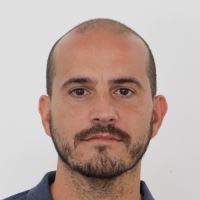 Carlos Marques Expertise on optical sensors and optical devices for optical communications and sensing. He received the Ph.D. degree in Physics Engineering from the UA, Portugal, in 2013. He was a Marie Curie (MC) Fellow in the Aston Institute of Photonics Technologies, Aston University, U.K until March 2016, focusing his work on sensors' systems for aerospace applications. After that, he was a Research Scientist (Assistant and Principal Researcher (CEEC))in the Physics Department & I3N, University of Aveiro, Aveiro, Portugal. Currently, he is Professor in Physics Department, University of Aveiro, Portugal, and full member of CICECO - Aveiro Institute of Materials, University of Aveiro, Portugal. His work is focused in Sensors and Devices. His main interests include innovative optical devices and structures for sensing, integrated optics, low cost interrogation systems, eHealth, aviation, data acquisition, predictive analytics and optical transmission data. He authored or co-authored 4 books, 7 book chapters, 200+ journal peer-review papers, more than 100 conference papers with emphasis on optical communications, data processing and sensing. According to Google Scholar, journal/conference articles have received 10000+ citations (h-index 69). He was awarded with several awards. Also, he is an Associate Editor of prestigious scientific journals like OSA Optics Express, IEEE Sensors Journal, Opto-Electronic Advances, Optical Fiber Technology (Elsevier) and acts also as referee of several high level international journals, receiving awards by review quality. He is Editor-in-Chief of IEEE Sensors Reviews Journal. He is a regular TPC member of some conferences of Optics and Photonics field, and he is regular invited to be session chairman in some international conferences.
Carlos Marques Expertise on optical sensors and optical devices for optical communications and sensing. He received the Ph.D. degree in Physics Engineering from the UA, Portugal, in 2013. He was a Marie Curie (MC) Fellow in the Aston Institute of Photonics Technologies, Aston University, U.K until March 2016, focusing his work on sensors' systems for aerospace applications. After that, he was a Research Scientist (Assistant and Principal Researcher (CEEC))in the Physics Department & I3N, University of Aveiro, Aveiro, Portugal. Currently, he is Professor in Physics Department, University of Aveiro, Portugal, and full member of CICECO - Aveiro Institute of Materials, University of Aveiro, Portugal. His work is focused in Sensors and Devices. His main interests include innovative optical devices and structures for sensing, integrated optics, low cost interrogation systems, eHealth, aviation, data acquisition, predictive analytics and optical transmission data. He authored or co-authored 4 books, 7 book chapters, 200+ journal peer-review papers, more than 100 conference papers with emphasis on optical communications, data processing and sensing. According to Google Scholar, journal/conference articles have received 10000+ citations (h-index 69). He was awarded with several awards. Also, he is an Associate Editor of prestigious scientific journals like OSA Optics Express, IEEE Sensors Journal, Opto-Electronic Advances, Optical Fiber Technology (Elsevier) and acts also as referee of several high level international journals, receiving awards by review quality. He is Editor-in-Chief of IEEE Sensors Reviews Journal. He is a regular TPC member of some conferences of Optics and Photonics field, and he is regular invited to be session chairman in some international conferences.
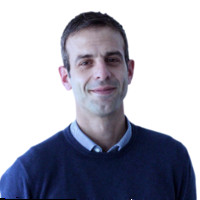 Daniel Poças holds an MSc in Biological Engineering with a specialization in Environmental Technologies from the University of Minho and a postgraduate degree in Integrated Management Systems from SGS - Société Générale de Surveillance and Universidade Fernando Pessoa. He is a certified project manager in agile methodologies - SCRUM. As a researcher, he worked on the fundamentals and pre-commercial applications of electrochemical reactors for energy generation and storage in various application contexts. For the past fifteen years, he has been active in the field of innovation management (Process Engineer, Project Manager, R&D Business Development) in both the private sector - IT, and the public sector - Research and Higher Education. Currently, he is an R&D Business Developer and Science and Innovation Manager at the Instituto de Telecomunicações, where he focuses on three main areas quality management in research and innovation projects; support for proposal submissions and funding applications to national and international, private and public funds, and the development, implementation, and management of strategies, architectures, processes, and innovation activities mediated by technology. Since 2022, he holds the position of Vice-President of the Board of Directors of the Aeronautics, Space, and Defense Competitiveness Cluster (AED). He is a team member of various R&D projects as well as projects promoting public policies for business resilience, particularly those related to the network of digital innovation hubs DIH - Connect5, PTCentroDIH, the national test beds network – NextGeneration Mobility and Aveiro Smart and Connect Spaces, the network of Free Technological Zones – ZLT Aveiro, as well as the network of Technology and Interface Centers – CTI - Instituto de Telecomunicações.
Daniel Poças holds an MSc in Biological Engineering with a specialization in Environmental Technologies from the University of Minho and a postgraduate degree in Integrated Management Systems from SGS - Société Générale de Surveillance and Universidade Fernando Pessoa. He is a certified project manager in agile methodologies - SCRUM. As a researcher, he worked on the fundamentals and pre-commercial applications of electrochemical reactors for energy generation and storage in various application contexts. For the past fifteen years, he has been active in the field of innovation management (Process Engineer, Project Manager, R&D Business Development) in both the private sector - IT, and the public sector - Research and Higher Education. Currently, he is an R&D Business Developer and Science and Innovation Manager at the Instituto de Telecomunicações, where he focuses on three main areas quality management in research and innovation projects; support for proposal submissions and funding applications to national and international, private and public funds, and the development, implementation, and management of strategies, architectures, processes, and innovation activities mediated by technology. Since 2022, he holds the position of Vice-President of the Board of Directors of the Aeronautics, Space, and Defense Competitiveness Cluster (AED). He is a team member of various R&D projects as well as projects promoting public policies for business resilience, particularly those related to the network of digital innovation hubs DIH - Connect5, PTCentroDIH, the national test beds network – NextGeneration Mobility and Aveiro Smart and Connect Spaces, the network of Free Technological Zones – ZLT Aveiro, as well as the network of Technology and Interface Centers – CTI - Instituto de Telecomunicações.
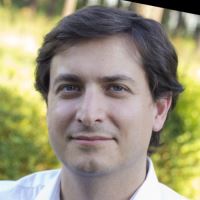 Dr. Diogo Gomes is an Associate Professor at the University of Aveiro and Senior Researcher at Instituto de Telecomunicações - Aveiro. In the last 20 years has participated in several EU funded projects such as IST-Mobydick, IST-Daidalos, IST-Akogrimo, IST-C-MOBILE, ICT-C-Cast, ICT-Onelab2, ICT-Medieval, H2020-5GinFIRE, H2020-5Growth and currently H2020-5GASP (Project Coordinator) where besides conducting research on Computer Networks and Telecommunications and Service & Application Development has always been deeply involved in the deployment of prototypes and demonstrators. Current research interests are related to 5G/6G Network Applications and Service Development, Knowledge Extraction and Context Storage in Internet of Things (IoT) Scenarios using Machine Learning techniques and Multi-Access Edge Computing. In this context was involved in industry collaborations namely with Portugal Telecom R&D branch in developing Smart Agriculture and Smart City prototypes (Project Apollo), and more recently with Bosch Thermotechnology in developing the concept of Smart Green House (Project SGH). He and his team are also deeply engaged in Open Source projects such as ETSI OSM and ETSI OSL where he vice-chair of the leadership group. He's a strong Open Source Advocate and was one of the founders of the University Linux User Group and has personally contributed to several OSS projects such Home Assistant. He's a passionate Hacker and Maker and president of a local association - Hack'Aveiro
Dr. Diogo Gomes is an Associate Professor at the University of Aveiro and Senior Researcher at Instituto de Telecomunicações - Aveiro. In the last 20 years has participated in several EU funded projects such as IST-Mobydick, IST-Daidalos, IST-Akogrimo, IST-C-MOBILE, ICT-C-Cast, ICT-Onelab2, ICT-Medieval, H2020-5GinFIRE, H2020-5Growth and currently H2020-5GASP (Project Coordinator) where besides conducting research on Computer Networks and Telecommunications and Service & Application Development has always been deeply involved in the deployment of prototypes and demonstrators. Current research interests are related to 5G/6G Network Applications and Service Development, Knowledge Extraction and Context Storage in Internet of Things (IoT) Scenarios using Machine Learning techniques and Multi-Access Edge Computing. In this context was involved in industry collaborations namely with Portugal Telecom R&D branch in developing Smart Agriculture and Smart City prototypes (Project Apollo), and more recently with Bosch Thermotechnology in developing the concept of Smart Green House (Project SGH). He and his team are also deeply engaged in Open Source projects such as ETSI OSM and ETSI OSL where he vice-chair of the leadership group. He's a strong Open Source Advocate and was one of the founders of the University Linux User Group and has personally contributed to several OSS projects such Home Assistant. He's a passionate Hacker and Maker and president of a local association - Hack'Aveiro
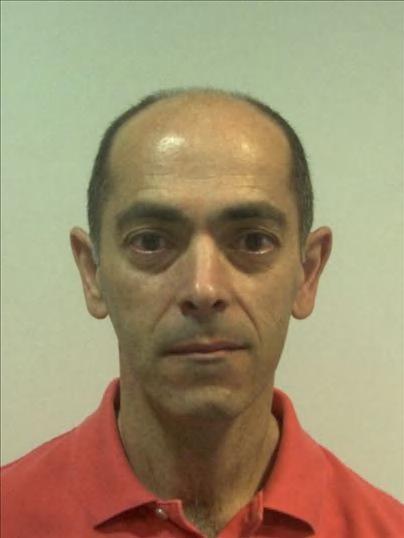 João Nuno Matos, has been a professor at the University of Aveiro since 1983, and a researcher at the Telecommunications Institute since its foundation in 1992. Throughout his career he has collaborated with or been responsible for the development of various (radio) transmitters and receivers, and radars. He is also responsible for training units on these topics.
João Nuno Matos, has been a professor at the University of Aveiro since 1983, and a researcher at the Telecommunications Institute since its foundation in 1992. Throughout his career he has collaborated with or been responsible for the development of various (radio) transmitters and receivers, and radars. He is also responsible for training units on these topics.
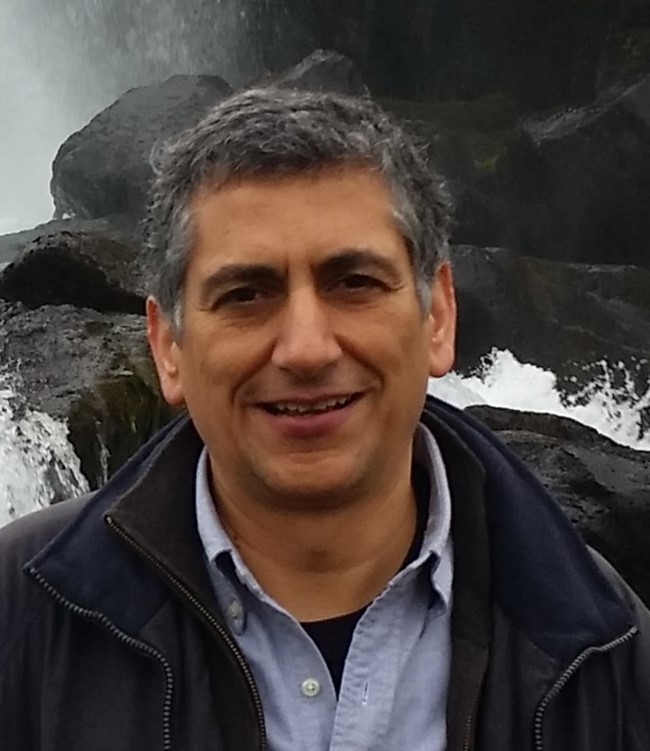 Paulo P. Monteiro is an Associate Professor at the University of Aveiro and a senior researcher at the Instituto de Telecomunicações where he is a research coordinator of Optical Communication Systems at the Instituto de Telecomunicações. His main research interests include optical communications, fixed mobile convergence, and reflectometry systems. Successfully tutored over 15 PhDs and 24 Masters and participated in more than 26 research projects. He has authored/co-authored more than 18 patent applications, over 157 papers in journals, and 290 conference contributions. He is the coordinator of the research infrastructure ORCIP (https://orcip.pt/).
Paulo P. Monteiro is an Associate Professor at the University of Aveiro and a senior researcher at the Instituto de Telecomunicações where he is a research coordinator of Optical Communication Systems at the Instituto de Telecomunicações. His main research interests include optical communications, fixed mobile convergence, and reflectometry systems. Successfully tutored over 15 PhDs and 24 Masters and participated in more than 26 research projects. He has authored/co-authored more than 18 patent applications, over 157 papers in journals, and 290 conference contributions. He is the coordinator of the research infrastructure ORCIP (https://orcip.pt/).
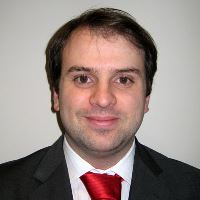 Pedro M. Cabral is an Assistant Professor at the University of Aveiro and a senior researcher at the Instituto de Telecomunicações where he integrates the Wireless Circuits and Systems Group and coordinates the Radio Frequency Laboratory. His main research interests include analysis and design of all types of electronic wireless devices from the individual component to the complete RF sub-system, giving particular attention to nonlinear blocks. These include, but are not limited to, active device modelling, power amplifiers, RF switches, mixers, oscillators, synthesizers, modulators and novel wireless transceiver architectures. He has authored/co-authored more than 100 papers in journals and conference proceedings. He has been a reviewer for several IEEE journals and is currently serving as an Associate Editor for IEEE Access and IET Microwaves, Antennas & Propagation. Besides that, he integrates the Technical Program Commitee of conferences such as European Microwave Conference, IEEE International Instrumentation and Measurement Technology Conference and Radio and Wireless Week.
Pedro M. Cabral is an Assistant Professor at the University of Aveiro and a senior researcher at the Instituto de Telecomunicações where he integrates the Wireless Circuits and Systems Group and coordinates the Radio Frequency Laboratory. His main research interests include analysis and design of all types of electronic wireless devices from the individual component to the complete RF sub-system, giving particular attention to nonlinear blocks. These include, but are not limited to, active device modelling, power amplifiers, RF switches, mixers, oscillators, synthesizers, modulators and novel wireless transceiver architectures. He has authored/co-authored more than 100 papers in journals and conference proceedings. He has been a reviewer for several IEEE journals and is currently serving as an Associate Editor for IEEE Access and IET Microwaves, Antennas & Propagation. Besides that, he integrates the Technical Program Commitee of conferences such as European Microwave Conference, IEEE International Instrumentation and Measurement Technology Conference and Radio and Wireless Week.
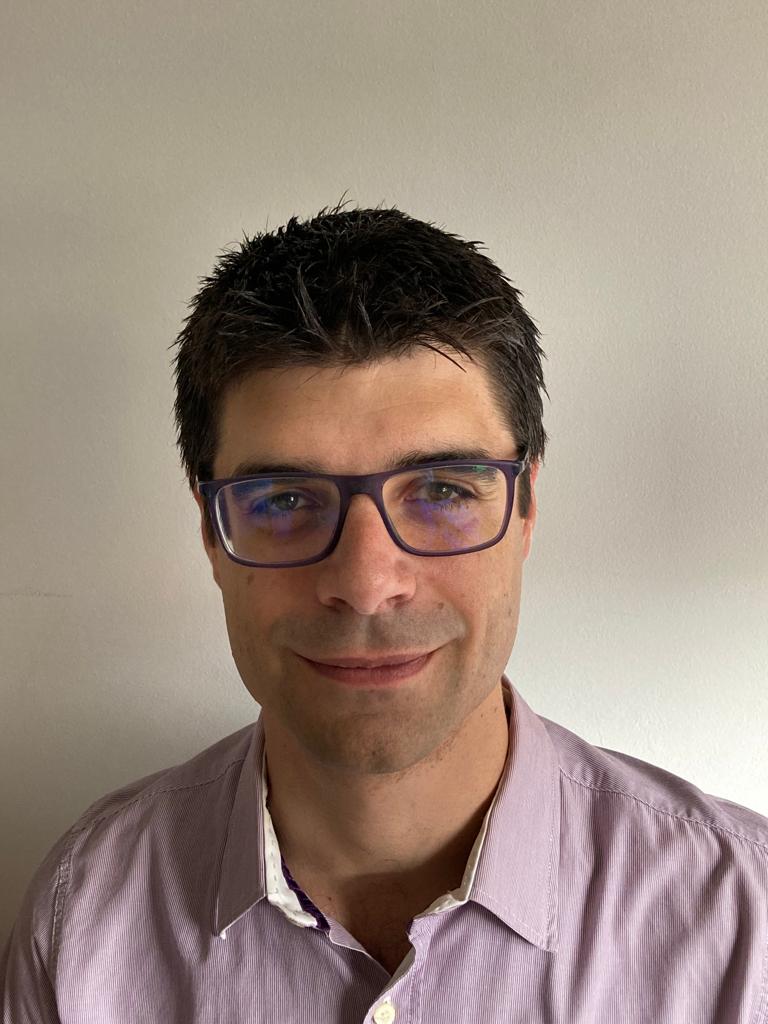 Pedro Casau is an Assistant Professor at the Department of Electronics, Telecommunications and Informatics of the University of Aveiro and a Researcher at IT-Instituto de Telecomunicações. He received the B.Sc. in Aerospace Engineering in 2008 from Instituto Superior Técnico (IST). In 2010, he received the M.Sc. in Aerospace Engineering from IST and enrolled in the Electrical and Computer Engineering Ph.D. program at the same institution which he completed with distinction and honour in 2016. He held the Research Assistant position at the University of Macau and was a Research Fellow at the Institute for Systems and Robotics in Lisbon. He participated in several national and international research projects on guidance, navigation and control of unmanned air vehicles (UAVs) and satellites. His current research interests include nonlinear control, hybrid control systems, networked control systems, event-triggered control, vision-based control systems, controller design for autonomous air-vehicles and spacecraft systems.
Pedro Casau is an Assistant Professor at the Department of Electronics, Telecommunications and Informatics of the University of Aveiro and a Researcher at IT-Instituto de Telecomunicações. He received the B.Sc. in Aerospace Engineering in 2008 from Instituto Superior Técnico (IST). In 2010, he received the M.Sc. in Aerospace Engineering from IST and enrolled in the Electrical and Computer Engineering Ph.D. program at the same institution which he completed with distinction and honour in 2016. He held the Research Assistant position at the University of Macau and was a Research Fellow at the Institute for Systems and Robotics in Lisbon. He participated in several national and international research projects on guidance, navigation and control of unmanned air vehicles (UAVs) and satellites. His current research interests include nonlinear control, hybrid control systems, networked control systems, event-triggered control, vision-based control systems, controller design for autonomous air-vehicles and spacecraft systems.
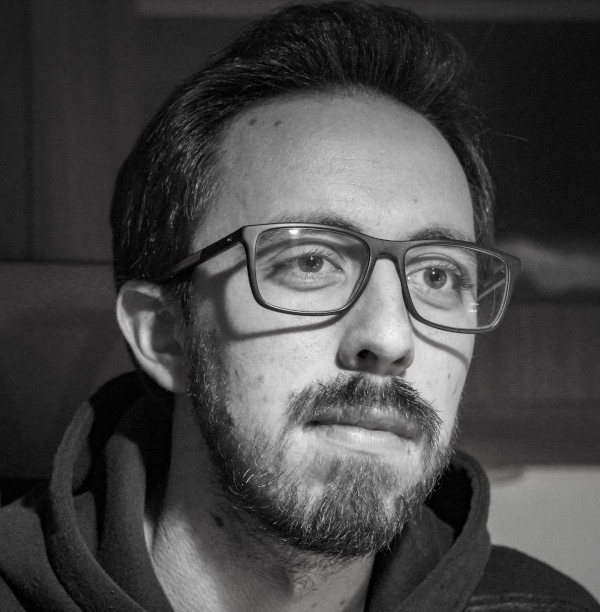 Samuel S. Pereira was born in 1995 in the city of Albergaria-a-Velha. In 2018, he finished his M.Sc. in Electrical and Telecommunications Engineering from the University of Aveiro, Aveiro, Portugal, and in 2024, he finished his PhD in Electrical Engineering at the same university. His main research interests include reconfigurable systems, software-defined radio, and delta-sigma-based transmitters. He also works with C-RAN applications for 5G and beyond.
Samuel S. Pereira was born in 1995 in the city of Albergaria-a-Velha. In 2018, he finished his M.Sc. in Electrical and Telecommunications Engineering from the University of Aveiro, Aveiro, Portugal, and in 2024, he finished his PhD in Electrical Engineering at the same university. His main research interests include reconfigurable systems, software-defined radio, and delta-sigma-based transmitters. He also works with C-RAN applications for 5G and beyond.
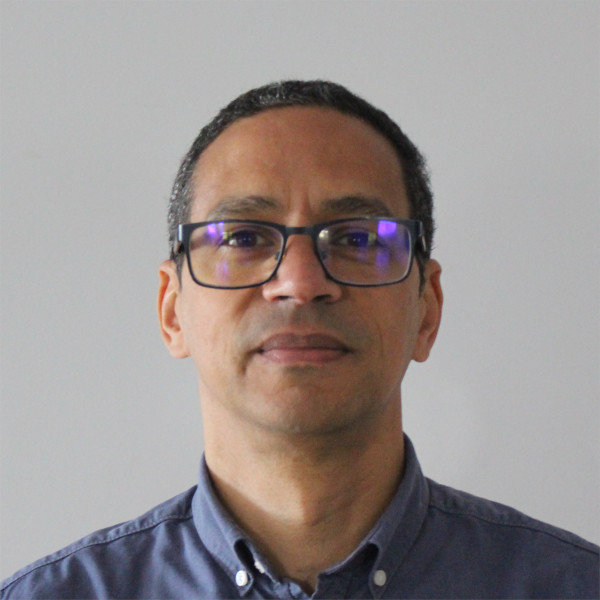 Sérgio Matos is a researcher at the Institute of Electronic Engineering and Informatics from Aveiro since 2008 and Associate Professor in the Department of Electronics, Telecommunications and Informatics at the University of Aveiro, where he coordinated the creation and was director of the Master's in Data Science during the academic years 2021/22 and 2022/23. His research activity focuses on machine learning, including neural models, data mining, information extraction and retrieval, and semantic data annotation, having published in these areas more than 100 articles in international journals and conferences.
Sérgio Matos is a researcher at the Institute of Electronic Engineering and Informatics from Aveiro since 2008 and Associate Professor in the Department of Electronics, Telecommunications and Informatics at the University of Aveiro, where he coordinated the creation and was director of the Master's in Data Science during the academic years 2021/22 and 2022/23. His research activity focuses on machine learning, including neural models, data mining, information extraction and retrieval, and semantic data annotation, having published in these areas more than 100 articles in international journals and conferences.
Registration Fees:
Refund Policy:
Notes:
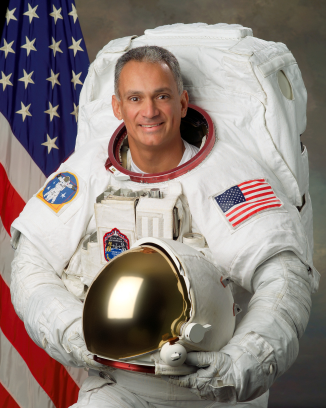
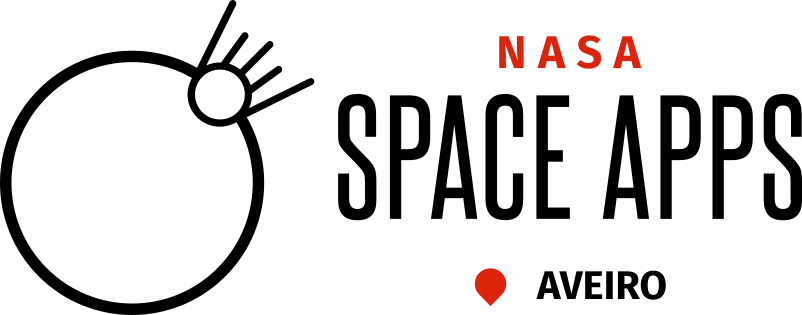
| 09:00 - 10:00 | Registration |
| 10:00 - 11:30 |
Opening Session
|
| 11:30 - 12:00 | Coffee Break |
| 12:00 - 13:00 | Panel on the New Space Economy with Astronaut Danny Olivas |
| 13:00 - 14:00 | Lunch |
| 14:00 - 14:30 | Space related Activities at Instituto de Telecomunicações and University of Aveiro |
| 14:30 - 15:00 | GeoSAT |
| 15:00 - 15:30 | Open Cosmos |


